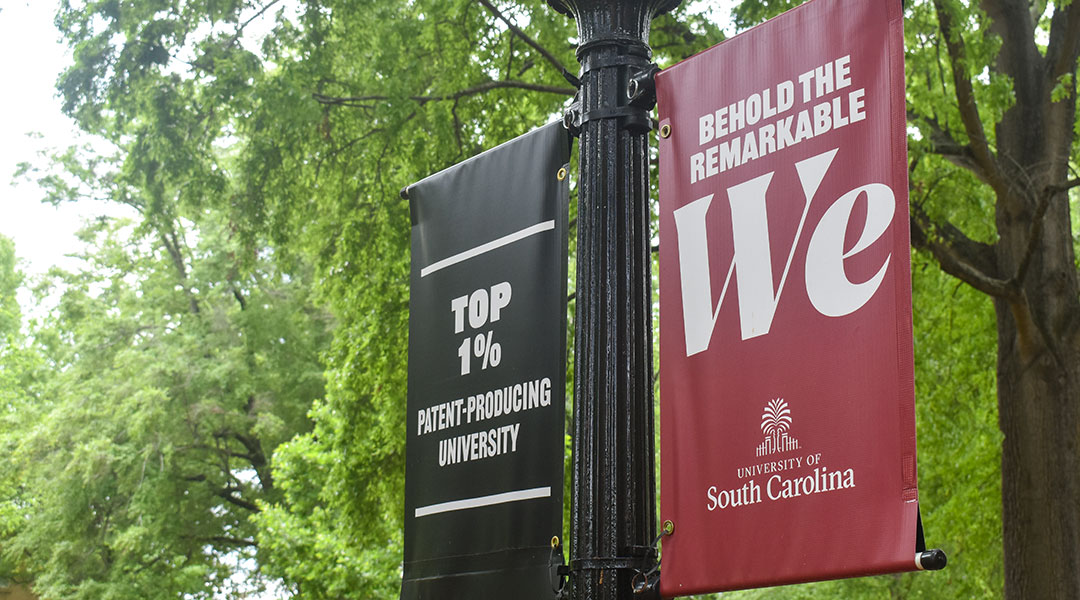University of South Carolina’s Columbia campus reported their diversity programing spending at more than $1.7 million in response to the information request. (Photo by Emily Okon)
South Carolina public universities and colleges have responded to the S.C. House of Representatives’ request asking for a breakdown in the funds spent on diversity, equity and inclusion programming.
The request was received by the S.C. Commission of Higher Education, said Mark Swart, spokesman for the commission. It was unclear which members of the house requested this information.
The House asked for the information regarding diversity spending in public colleges and universities in early February. Universities had until Feb. 23 to submit their responses.
It’s uncertain what the House of Representatives plans to do with the information. The request comes as lawmakers in other states have sought similar information from their institutions.
Diversity spending at the University of South Carolina in Columbia – the state’s flagship public institution – was $1.7 million, according to the school’s response, which it shared with Carolina News & Reporter.
USC included in its response a letter from President Michael Amiridis emphasizing a student’s need to belong.
“Rigorous empirical research on student retention and academic success at U.S. colleges and universities indicates a strong, positive correlation between students’ ‘sense of belonging’ and their social and academic prosperity,” Amiridis said in the letter to the higher education commission.
Everyone needs a chance to succeed, said Shirley Staples Carter, associate dean of diversity, equity and inclusion at the School of Journalism and Mass Communications.
“At USC, we emphasize the term ‘inclusive’ in that the efforts we make are to create an environment where everyone can succeed regardless of their background, their race, their gender and whatever else makes someone different,” Carter said.
Several other state governments have made similar requests of universities that introduced diversity programming that educates faculty, staff and students on the changing demographics in their schools.
The requests each have asked for spending related to policy or programming that references race, ethnicity, sexual orientation and gender identity.
The Kansas Legislature voted April 6 to block public secondary institutions from spending funds that would require students or employees to affirm or deny support for diversity, equity and inclusion on its campus, according to The Kansas City Star.
The ban was proposed as the legislature worked to create the budget bill for higher education institutions.
It’s unclear which S.C. House members requested the information – or why. But conservative states such as Oklahoma and Florida have recently analyzed their own states’ spending.
Oklahoma’s state superintendent of public education, Republican Ryan Walters, requested the information in his state.
He said drawing attention to students’ skin color, by definition, can make them feel ashamed.
“Universities across the country have violated academic standards by telling students that they are inferior and shamed because of their race,” Walters said, in a statement to the Chronicle of Higher Education. “These programs have pushed a radical agenda, and I am calling for transparency. The far left has infiltrated higher education, and we will not tolerate it any longer.”
Republican Florida Gov. Ron DeSantis asked public universities in December to detail their spending.
An analysis completed by the Chronicle of Higher Education said diversity spending took up less than 1% of the budget in Florida institutions.
An influential conservative think tank, the Manhattan and Goldwater Institutes, published model state legislation on the topic in January.
The model legislation described in detail how state legislatures could dismantle diversity programming in public universities.
“This package is meant to reverse illiberal tendencies that have swept across higher education in the past decade,” Ilya Shapiro said to the Chronicle of Higher Education.
Shapiro is one of the authors of the model bill and a senior fellow and director of constitutional studies at the Manhattan Institute.
The minds behind the model legislation say public universities shouldn’t be using tax dollars to promote one ideology over another.
But some college leaders and students say it is their responsibility to educate students and staff to create a better community.
As “we look at the population of the state of South Carolina, one group may be underrepresented, and that may not be reflected in the university population,” Carter said. “And as a state institution, if we have a population that is inconsistent with the state population, we want to address that.”


